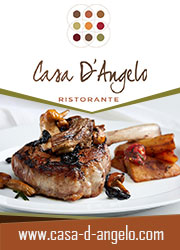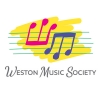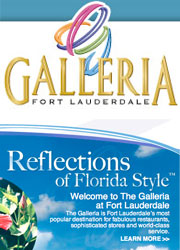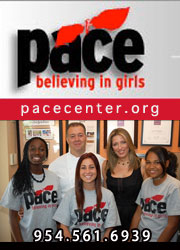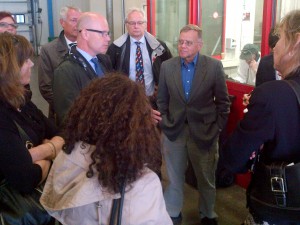 The U.S. delegation meets with Dutch colleagues at the Port of Rotterdam, the largest seaport in Europe. Jack Vera (center), head of the Import Inspection Division, Netherlands Food and Consumer Product Authority, discusses with Mike Taylor and others procedures required by the European Union for conducting product checks and for sampling and testing product at the Border Inspection Post. After trips to the Pacific Northwest and New England to connect with growers and state partners on produce safety, I traveled last week to Europe to talk with our regulatory counterparts and others about what the proposed rules under the Food Safety Modernization Act (FSMA) mean for countries that export food to the United States. In Europe, the focus was on all four of the rules we have proposed so far, including two rules proposed in July that implement the Congressional vision of achieving greater importer accountability for food safety.
The U.S. delegation meets with Dutch colleagues at the Port of Rotterdam, the largest seaport in Europe. Jack Vera (center), head of the Import Inspection Division, Netherlands Food and Consumer Product Authority, discusses with Mike Taylor and others procedures required by the European Union for conducting product checks and for sampling and testing product at the Border Inspection Post. After trips to the Pacific Northwest and New England to connect with growers and state partners on produce safety, I traveled last week to Europe to talk with our regulatory counterparts and others about what the proposed rules under the Food Safety Modernization Act (FSMA) mean for countries that export food to the United States. In Europe, the focus was on all four of the rules we have proposed so far, including two rules proposed in July that implement the Congressional vision of achieving greater importer accountability for food safety.
Food safety is a critical issue for all of us in today's global food system. For consumers in the U.S., there's a good chance that the food they are eating is imported. Fifteen percent of all the food we eat each year comes from other countries and the percentage is much higher for certain commodities, like fruits and vegetables, seafood and spices. American consumers want to know that imported food is as safe as food produced here.
U.S. food producers and processors also have a stake in the safety of food and ingredients from overseas and rightly want to know that there's a level playing field – that imported food would have to meet the same safety standards as food produced in the U.S. under the new food safety rules. And it makes sense that European firms and governments are interested in the FSMA requirements we are developing because they want to maintain market access in the U.S.
Our first stop was in Grange, Ireland, just outside Dublin, where the European Union's Food and Veterinary Office (FVO) is housed. FVO oversees the national food safety inspection programs conducted by the EU's 28 member states. We had a full day of detailed discussion with FVO director Michael Scannell and his team about FSMA and the opportunity to collaborate on its implementation. The opportunities are great and are important for the U.S. and Europe if we're to achieve both effectiveness and efficiency in food safety oversight.
There are some differences in how Europe approaches food safety oversight but what was striking to me was that many of the overarching principles that guide us are so similar. In the Netherlands, our second stop, a presentation by Dr. Ron Dwinger from that country's Food and Consumer Product Authority emphasized basic principles that are very familiar to all of us – a focus on prevention, the importance of addressing food safety from farm to table, the need to base strategies on risk, and the importance of industry responsibility. It was obvious to me that all of us are talking the same language and that food safety reform is a global movement.
While in the Netherlands, my FDA colleagues and I visited the Port of Rotterdam, which is the largest seaport in Europe. The fact that it is a major gateway to the European market for food commodities from around the globe really showed the scale and complexity of today's modern food system. We were briefed by Jack Vera, head of the Import Inspection Division, Netherlands Food and Consumer Product Authority, about their procedures and strong safety controls over what comes into the country, and we witnessed the sampling of frozen tuna from a large container that originated in Ecuador.
We moved on to Brussels for a critical meeting with our EU regulatory counterparts from DG Sanco, an arm of the European Commission that sets food safety policy and standards for the EU. FDA has had a very positive, ongoing relationship with Paola Testori, the head of DG Sanco. She is a strong leader for consumer protection and a staunch proponent of trans-Atlantic partnership on food safety, including FSMA implementation. Her direct and candid style will help ensure we fulfill our common vision.
We then held a public listening session in Brussels, where we found the same diversity of stakeholders and questions that we expect back home – from government, industry, and consumer groups. Those participating at the meeting represented both the EC and some of the EU member states.
Finally, after traveling to three countries in three days, we left Brussels for Geneva, where we visited our colleagues in the food safety program at the World Health Organization, who play a key role in assuring the scientific quality of international food safety standards, established by the Codex Alimentarius Commission of the United Nations, and in building the food safety capacity of developing countries.
The last stop of our trip was at the World Trade Organization (WTO) headquarters, which sits on the shore of the beautiful lake straddled by the "old" and "new" Geneva. We met there with Gretchen Stanton, who oversees implementation of WTO agreements related to trade in food, and her colleague Melvin Spreij. Trade is important to the economies of developed countries but also for less developed ones, many of which want to strengthen their food safety systems so they can export to markets in the U.S. and Europe. We discussed our international outreach efforts on FSMA and how to help developing countries build their food safety capacity.
With each visit, meeting and listening session we participate in, both in the U.S. or abroad, it becomes clearer and clearer how important partnerships will be to successful food safety reform and how many willing partners we have.
The aspiration for partnership is of course the easy part. Actually building meaningful operational partnerships is much more difficult and will require sustained investment of effort and significant resources. It will be worth it though if the end result is a modern food safety system suited for our global food economy and capable of maintaining the public confidence essential to trade in food, whether domestic or international.

